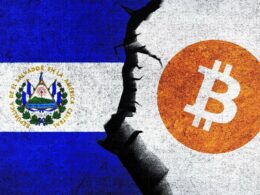JPMorgan has predicted a potential 20% drop in the Bitcoin (BTC) Network Hashrate following the next halving event scheduled for April 2024. The report stated, “We estimate as much as 80 EH/s (or 20% of the network hashrate) could be removed at the next halving (April ’24) as less-efficient hardware is decommissioned.”
The Bitcoin halving occurs every four years and involves a halving of rewards for Bitcoin miners. The report also mentioned that the four-year block reward opportunity amounts to approximately $20 billion, based on Bitcoin’s current price. However, it noted that there has been a significant decrease of around 72% compared to just over two years ago.
Recommended Mining Operators
The report by JPMorgan also recommended mining operators that offer the best relative value based on factors such as existing hashrate, operational efficiency, power contracts, funded growth plans, and liquidity.
It added that the investment bank would start coverage with the following ratings and price targets:
- CleanSpark (CLSK) overweight with a $5.50 target
- Marathon Digital (MARA) underweight with a $5 target
- Riot Platforms (RIOT) underweight with a $6.50 target
- Cipher Mining (CIFR) neutral
Additionally, Iris Energy (IREN) has been upgraded from neutral to overweight. JPMorgan’s top pick is CleanSpark, which offers the best balance of scale, growth potential, power costs, and relative value. The report also highlighted that while Marathon is the largest mining operator, it has the highest energy costs and lowest margins. Riot, on the other hand, has relatively low power costs and liquidity but is the most expensive stock in JPMorgan’s coverage universe. Cipher Mining boasts the lowest power costs among peers but is considered growth-constrained.
Hedging Options for Bitcoin Miners
As reported, Bitcoin miners are considering hedging options to protect their revenue stability amidst the volatility of the cryptocurrency market. GSR, a leading firm in the trading and market-making space, is pitching hedging products that would provide miners with a more predictable income. By offering these tools, GSR aims to make the $500 billion Bitcoin network more resilient, ensuring that large operators are not at risk of going under during market downturns.
It is worth noting that miners often hold onto the Bitcoin they mine rather than selling it immediately. This acts as a form of natural hedge, as miners bet on the price increasing over time. However, by not selling their mined Bitcoins, miners risk forgoing immediate profits.
















